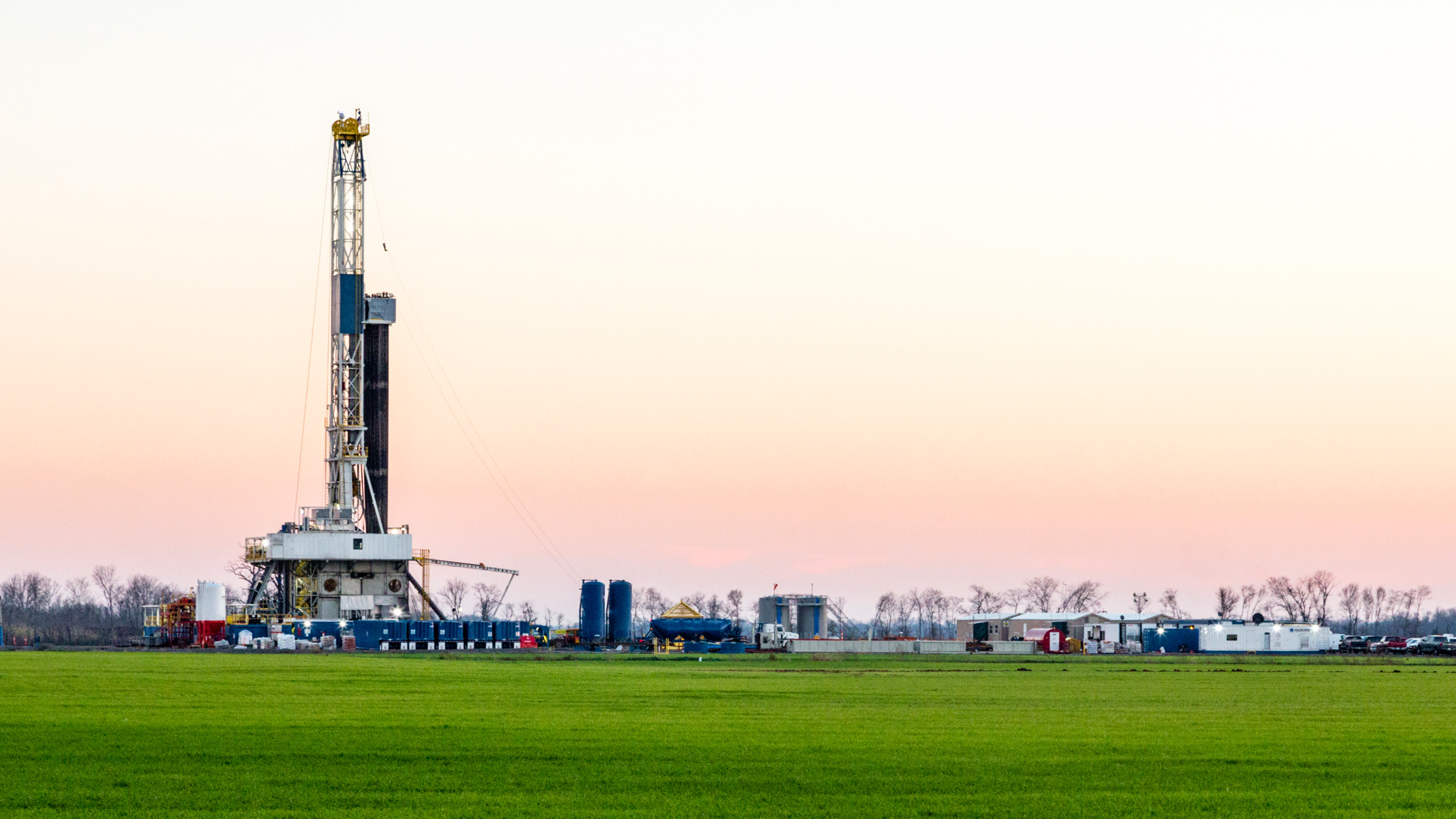People who live near fracking sites have been complaining for years about headaches, nosebleeds, and birth defects. Now one such population, in Washington County, Penn., is getting some help in the form of free medical consultations — but not from the usual suspects.
Washington County is a place known for its many picturesque bridges. It’s also known for its “wet gas” — an underground smorgasbord of methane, propane, butane, and ethane that hasn’t seen daylight since the Devonian era. During the drilling process, most of this gas is captured, but a certain amount does leak into the atmosphere.
There has been some research into the risks of living in a natural gas drilling area, but not the kind of long-term, systematic study that would prove or disprove a connection between the gas and the health issues.
There are reasons for this. Some of them are political: Back in 2011, Philadelphia’s House of Representatives set aside $2 million to create a public health registry for tracking health complaints related to fracking, but the funding that would have made it happen was cut at the last minute. Any current complaints are referred to the state Bureau of Epidemiology, which keeps those complaints secret, citing patient confidentiality. In 2012, New York’s Department of Environmental Conservation asked the Department of Health for a review of the public health risks associated with fracking, but the commissioner in charge of the report kept stalling, and stepped down from the job this spring without ever finishing it.
Other reasons are financial. Correlations between environmental pollution and personal health are hard to prove. People aren’t lab rats. They get up to all kinds of variable-confounding mischief, like smoking, or moving, or working in jobs that expose them to a whole new set of environmental risks. Studying humans properly is very, very expensive, and today, most expensive science is funded and guided by the enthusiasms of the very well-to-do.
The trick, then, is to find a well-to-do person (or foundation) that might be really interested in fracking epidemiology. There aren’t many. But yesterday, Inside Climate News (in partnership with the Center for Public Integrity) profiled one: the Southwest Pennsylvania Environmental Health Project (SWPA-EHP — and yes, that is an unfortunate acronym).
SWPA-EHP is run by an impressive group of scientists, including a former EPA toxicologist, and it was started with the support of the Heinz Endowments. It is well-placed to do exactly the kind of research into fracking’s health impact that we need. Right now, though, it doesn’t do a lot of research — a state of affairs that SWPA-EHP blames on its limited budget ($750,000 a year) and that its critics blame on a lack of courage.
Here’s what SWPA-EHP does do: It educates people who live near drilling sites about how to take health precautions. It keeps a nurse-practitioner on staff to answer more detailed questions. And it spins off what information it does find into interesting, but not statistically significant, studies.
So maybe SWPA-EHP is hoping that if it can first draw attention to a health problem, then research grants will follow. There’s a precedent for this approach in the story of flame retardants. Over the last decade, a small group of scientists — particularly a biochemist named Arlene Blum — managed to mobilize scientific and political interest in what was a little-known subject at the time. Within a few years, solid research began to emerge that flame retardants were more pervasive and more risky than anyone had thought, and a few years after that, some behind-the-scenes political maneuvering managed to change the regulations around their use.
“Spread the word first, then do the research” can work, at least sometimes. But that doesn’t mean it’s a great way to do science. It ought to be possible to fund and perform important research into public health without having to mount a full-on public relations campaign first.



